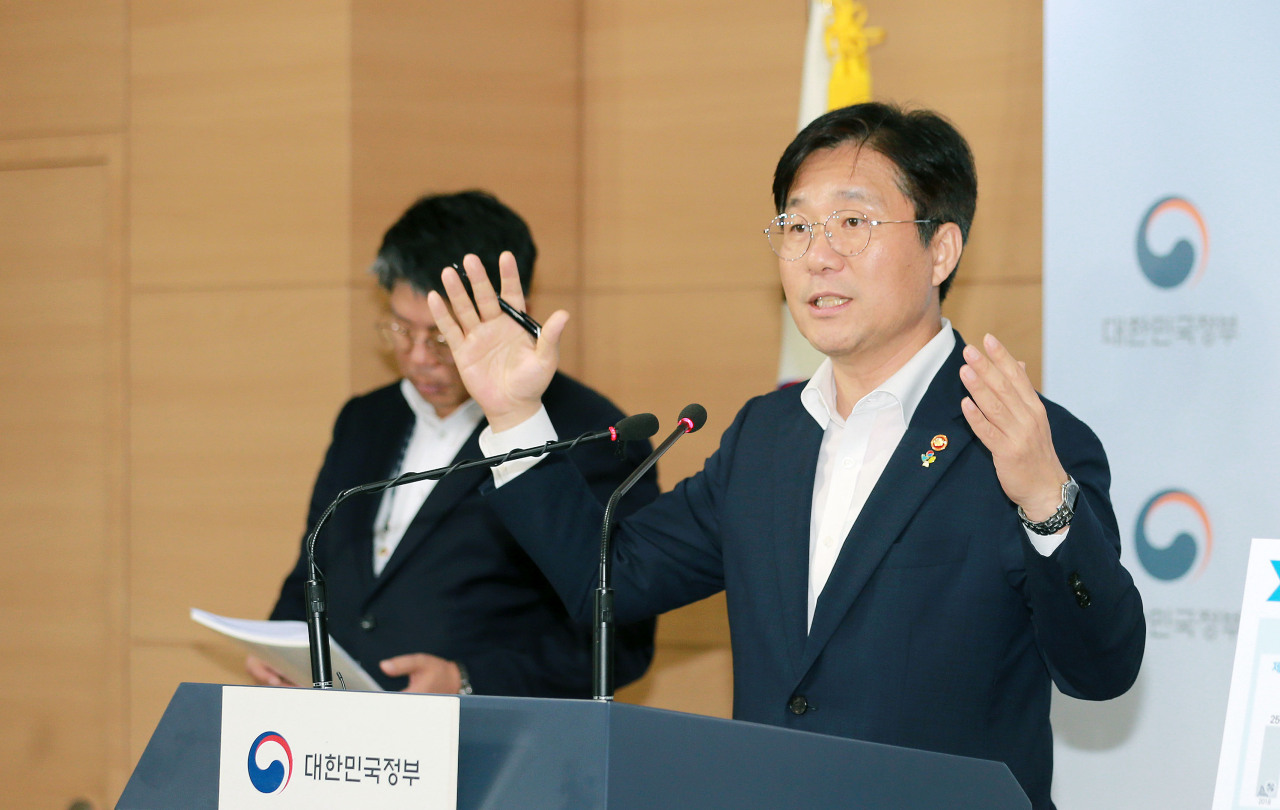South Korea announced its vision to create a “manufacturing renaissance” over a number of industries, viewing manufacturing as the nation’s economic foundation and a way of creating high-quality jobs and innovative growth.
“The government has mapped out strategies for the nation to become an innovative manufacturing powerhouse over the next decade by being away from ‘quantitative and market follower strategies,’” a spokesperson for the Ministry of Trade, Industry and Energy said Wednesday.
The announcement comes amid growing concerns that the nation’s industrial strategies of following cutting-edge market leaders and competing on quantity have reached their limit.
In the fast-changing environment, including the emergence of the fourth industrial revolution, toughening environmental regulations and a reshuffle of a new international trade order, the nation’s traditional key industries are losing their vitality and the creation of new industries has been slow, the ministry said.
The ministry has been preparing the blueprint after President Moon Jae-in called for swift strategies for the manufacturing renaissance in a meeting in December last year.

Industry Minister Sung Yun-mo
Through the push, the nation aims to raise the current value-added ratio of 25 percent to 30 percent in manufacturing sectors by 2030. It also seeks to increase the portion of new industries and new items out of total manufacturing production from the current 16 percent to 30 percent.
To create a manufacturing renaissance, the government will focus on four main strategies: innovating the industrial structure with smartification, eco-friendliness and convergence; replacing conventional industries with new industries through innovation; reshuffling industrial eco-system centering on challenges; strengthening roles of the government in supporting investment and innovation.
One of the highlights is that the ministry will push ahead with artificial intelligence-based industrial intelligence across all manufacturing sectors.
This year, it plans to develop a national AI strategy. By 2030, it intends to build 2,000 AI-based factories, which are a more advanced version of smart factories, and enact manufacturing innovation laws.
By collecting data from smart factories, the government will build a data center to support AI-based services and foster smart manufacturing facilities such as key software, robots, sensors and equipment.
The Industry Ministry will also unify national capacity and resources to foster new vital industries.
It plans to inject 8.4 trillion won ($7.1 billion) in research and development of the nation’s three key industries, non-memory chips, future mobility and bio. Currently, feasibility studies are being implemented for budget funding. This will back a combined 180 trillion won of investment made by the private sector.
Korea also aims to lead the eco-friendly market by making products and manufacturing greener. The government plans to support technology development, infrastructure and demand creation for eco-friendly cars and vessels, air industry and energy industry.
As for electric and hydrogen cars, the government plans to inject 385 billion won in R&D from 2020 to 2025 and to distribute 430,000 electric vehicles by 2022 and 850,000 hydrogen cars by 2030.
It also plans to inject 600 billion won in R&D in liquefied natural gas vessels from 2021 to 2030 with an aim to produce 140 LNG vessels by 2025.
Alongside the products, clean factories will be adopted to improve manufacturing sectors that emit a high amount of air pollutants, the ministry said.
By Shin Ji-hye (shinjh@heraldcorp.com)






![[KH Explains] Hyundai's full hybrid edge to pay off amid slow transition to pure EVs](http://res.heraldm.com/phpwas/restmb_idxmake.php?idx=645&simg=/content/image/2024/04/18/20240418050645_0.jpg&u=20240419100350)